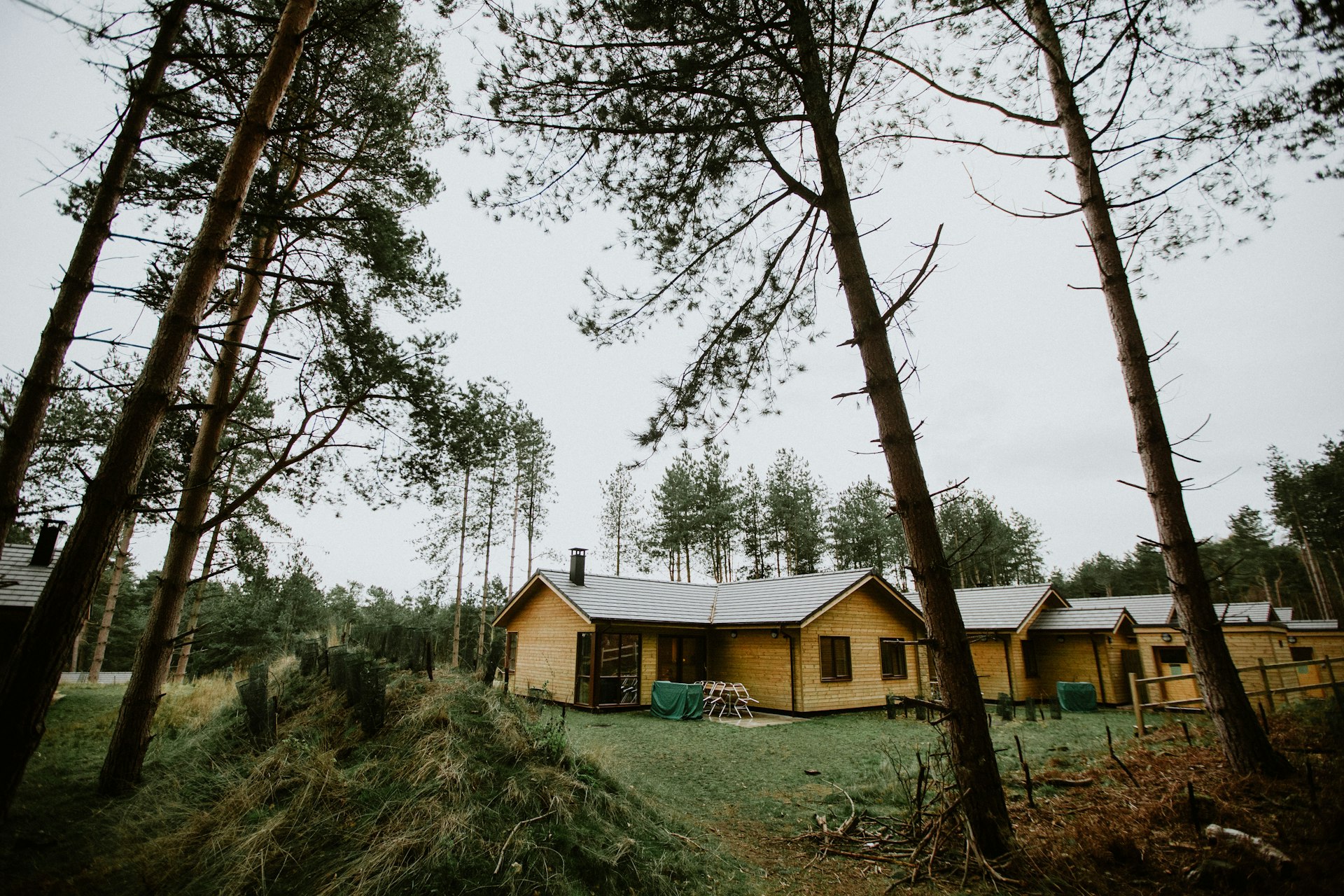Transforming Urban Skylines: Opportunities and Strategies in Mixed-Use Skyscraper Developments

Photo by Dave Visser on Unsplash
Introduction: The Rise of Mixed-Use Skyscraper Developments
Mixed-use skyscraper developments are reshaping urban and suburban environments by integrating residential, commercial, office, and public spaces within vertical city blocks. Driven by evolving lifestyle preferences, economic demands, and innovative architecture, these high-rise projects create vibrant communities that support live, work, and play opportunities, making them attractive for investors, residents, and businesses alike [1] [3] .
Key Features and Benefits of Mixed-Use Skyscraper Developments
Modern mixed-use skyscraper developments offer:
- Integrated Living and Working Spaces : Residents can access amenities, shops, offices, and public areas without leaving the building, streamlining daily routines and fostering convenience.
- Community Activation : By incorporating public plazas, parks, and retail at ground level, these towers encourage social interaction and support local economies [1] .
- Sustainability : Many projects feature biophilic design, sky gardens, and energy-efficient systems, contributing to environmental goals and healthier urban living [1] .
- Economic Resilience : Mixed-use projects diversify revenue streams for developers and investors, reducing risk and enhancing long-term value.
For example, Singapore’s CapitaSpring Tower blends office, residential, food, and public spaces with over 80,000 plants, creating a green oasis in the heart of the city’s financial district [1] .

Photo by Usman Yousaf on Unsplash
Recent Case Studies and Notable Projects
Several landmark mixed-use skyscraper developments illustrate the industry’s innovation and impact:
- CapitaSpring, Singapore : A 280-meter tower featuring sky gardens, serviced residences, offices, and dining, renowned for its biophilic design and extensive public green spaces [1] .
- Lincoln Yards, Chicago : A $6 billion, 53-acre project transforming the North Branch of the Chicago River with biotech labs, roadways, and a riverwalk, aiming to revitalize the area and attract diverse tenants [3] .
- 685 Fifth Avenue, New York : Conversion of the former Gucci headquarters into Mandarin Oriental’s first exclusive residential property on the East Coast, adding luxury condos and amenities while overcoming complex engineering and zoning challenges [4] .
- 670 Mesquit, Los Angeles : Approved in 2025, this project will deliver office space, residential units, and hotels across multiple phases, reflecting the city’s commitment to mixed-use urban living [2] .
These examples demonstrate the potential for mixed-use skyscrapers to drive urban renewal, economic growth, and enhanced quality of life.
Implementation Guidance: How to Access Opportunities in Mixed-Use Skyscraper Developments
The process of engaging with mixed-use skyscraper projects-whether as a resident, investor, developer, or business-requires targeted steps and strategic planning. Below is comprehensive guidance on how to access these opportunities:
- Identify Target Markets and Projects Begin by researching cities and neighborhoods with active mixed-use development pipelines. Use authoritative sources such as ArchDaily MultiFamily Dive for project announcements and updates. Look for projects that align with your goals-whether residential, commercial, or investment focused.
- Engage with Developers and Agents Contact project developers directly through their official channels or collaborate with reputable real estate agencies specializing in high-rise mixed-use properties. For example, Sterling Bay (Lincoln Yards) and SHVO (685 Fifth Avenue) maintain official contact portals for inquiries about leasing, purchasing, or investment. You can typically find contact details on their respective corporate websites.
- Evaluate Project Features and Offerings Carefully review project documentation, amenity lists, and commercial opportunities. Many mixed-use skyscrapers offer luxury residences, flexible office space, retail storefronts, and public-access areas. Consider attending virtual or in-person open houses, information sessions, or investor briefings to gain firsthand knowledge.
- Secure Financing and Legal Review Mixed-use skyscraper investments often require significant financing. Consult with banks, mortgage providers, or institutional partners experienced in high-rise and multi-use projects. Engage legal and financial advisors to review contracts, zoning requirements, and compliance standards relevant to your transaction.
- Participate in Community Engagement Many projects involve public hearings or community workshops before breaking ground. Participate in these forums to voice preferences, understand local impact, and build stakeholder networks. Local government planning departments and city council meeting schedules can usually be found on official city websites.
- Monitor Construction and Delivery Timelines Stay informed about project milestones, phased openings, and completion dates through verified news sources or direct developer updates. This enables timely decision-making for leasing, purchasing, or investment.
For those interested in residential opportunities, you may contact building management or visit official property websites for application details. For commercial leasing, work with professional brokers who specialize in mixed-use towers. Investors should request prospectuses and review partnership options directly with the development’s finance team.
Challenges and Solutions in Mixed-Use Skyscraper Projects
Developing and accessing mixed-use skyscraper properties can present notable challenges:
- Zoning and Compliance : Navigating complex zoning codes, environmental regulations, and building codes is essential. Developers must secure permits, address community concerns, and comply with sustainability mandates [4] .
- Financing Complexity : The multi-use nature of these projects often calls for layered financing strategies and risk management. Solutions include phased development, public-private partnerships, and diversified revenue models.
- Community Integration : Balancing public amenities with private interests requires robust stakeholder engagement and transparency throughout the planning process [3] .
Solutions include leveraging experienced consultants, engaging with local government, and adopting flexible design principles to address evolving market needs.
Alternative Approaches and Emerging Trends
As mixed-use skyscraper developments evolve, alternative models and trends are emerging:
- Adaptive Reuse : Converting existing buildings-such as historical offices-into mixed-use towers is increasingly popular, offering sustainability and cost advantages [4] .
- Vertical Urbanism : Projects like CapitaSpring demonstrate how vertical stacking of uses and green spaces can maximize urban land and enhance livability [1] .
- Suburban Expansion : Mixed-use models are extending into suburban markets, creating new destination communities beyond city centers [3] .
Those seeking opportunities in emerging markets should monitor local planning announcements and collaborate with regional developers, as the mixed-use trend continues to expand.
Practical Steps for Getting Started
To explore or engage with a mixed-use skyscraper development:
- Research upcoming and ongoing projects through authoritative architecture and real estate news portals such as ArchDaily and MultiFamily Dive.
- Contact relevant developers or property managers through their official websites or corporate offices.
- Consult with local real estate agents specializing in mixed-use high-rise properties for guidance and market insights.
- Attend public forums or city planning meetings for community engagement opportunities.
- Secure legal and financial support to ensure compliant and successful transactions.
If you cannot find direct contact information for a specific project, search the official websites of the developer or the city’s planning department for verified pathways to application or inquiry.
References
- [1] ArchDaily (2025). Mixed Use Tower: The Latest Architecture and News.
- [2] ArchDaily (2025). Mixed Use Development: The Latest Architecture and News.
- [3] MultiFamily Dive (2025). 7 major mixed-use projects underway across the country.
- [4] Building Design+Construction (2025). 5 mixed-use office projects for 2025.
MORE FROM dealresult.com













